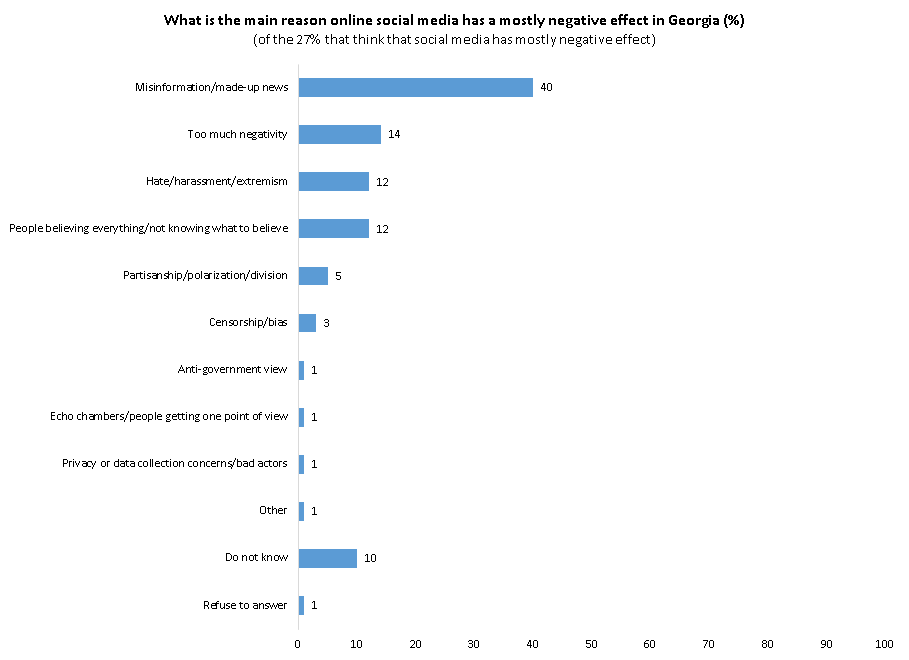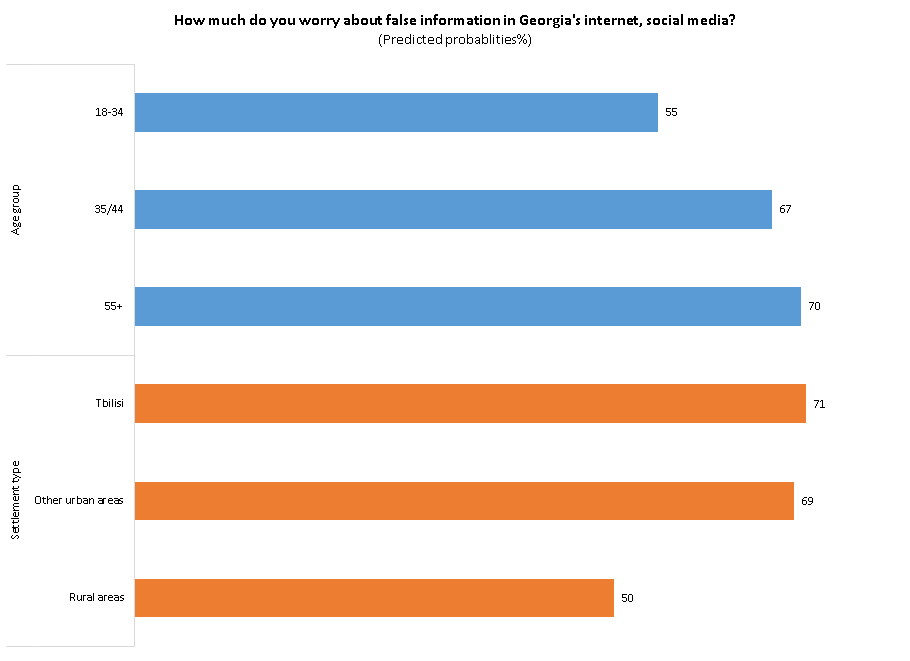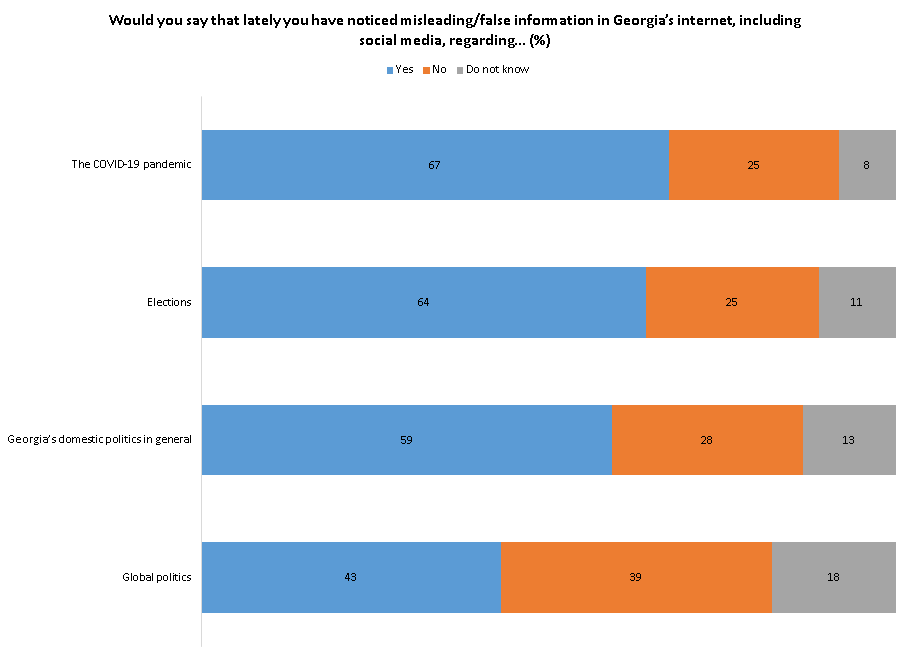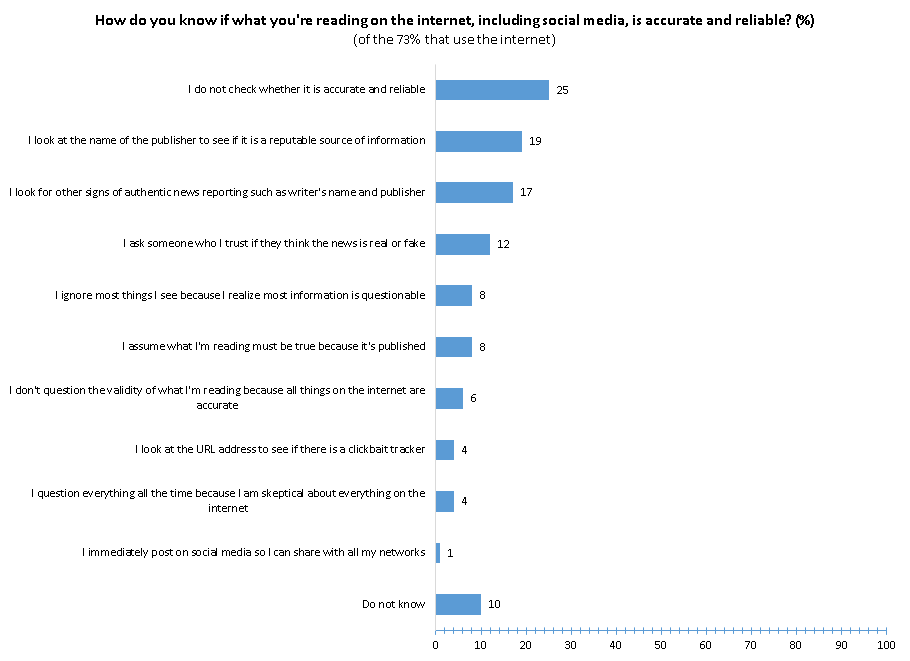Note: This article first appeared on the Caucasus Data Blog, a joint effort of CRRC Georgia and OC Media. It was written by Salome Dolidze, a Researcher at CRRC-Georgia. The views presented in the article are of the author alone, and do not necessarily reflect the views of CRRC Georgia, or any related entity.
Caucasus Barometer 2021, an annual household survey run by CRRC, investigated a range of attitudes and behaviours related to social media in Georgia. 27% of those surveyed felt that social media had a negative effect on the country, 18% a positive effect, and 42% a neutral or mixed effect.
Of those that thought it had a negative effect, 40% reported that the main reason for the negative effect was misinformation. This answer was by far the most common response to the question.
Similarly, more than half (59%) of those who use the internet worry about false information on the Georgian internet. Regression analysis suggests that some groups are particularly worried about false information. People over the age of 35 were more likely to report that they worry about false information online. People living in rural areas were less likely to worry about this issue.
Other social and demographic variables such as sex, education, ethnicity, employment status, wealth, and having children in the household were not associated with attitudes towards false information on Georgia’s internet.
More than half of the internet-using population said that lately, they had noticed misleading or false information online about the COVID-19 pandemic (67%), elections (64%), and Georgia’s domestic politics in general (59%), while 43% say the same regarding global politics.
When it comes to reasons for disseminating misleading or fake news, 43% of Georgians think that the reason is to confuse people and distract them from real problems. The next most common reasons were advancing a political agenda or position (15%) or getting more engagement with their content (14%).
While Georgians recognise that misinformation is an issue, few do much to check the information that they receive online. One in five does not check if the information they are reading online is accurate and reliable.
Around half (53%) of the internet-using population believe what they are reading on the internet but verify it in some manner. Some report using approaches like looking for the writer’s name and/or a publisher (36%), or looking at a URL address (4%). A further 12% ask someone they trust, and 1% post on social media looking for clarification.
Another 14% report they believe just about everything online, with 8% saying that they believe what they read on the internet because it is published, and 6% thinking that everything on the internet is accurate.
Few are highly sceptical about everything they read on the internet. In total, 8% ignore most things they see, because they feel most information is questionable. A further 4% question all the information they access because they are sceptical about everything on the internet.
The analysis shows that most people in Georgia who use the internet worry about the spread of fake news on the internet and social media. However, a large proportion of people do not check whether the information they receive on the internet is reliable or not.
The data used in this article is available here. The regression analysis used in this article included the following variables: Age (18-34, 35-54, 55+); Sex (male or female); Settlement type (Tbilisi, other urban, rural); Education level (tertiary or not); Ethnicity (Ethnic Georgian or ethnic minority); Employment status (employed or not working); Child dependency ratio (share of household 18 or under); Wealth index (A simple additive index of ownership of a number of durable goods within a household).





